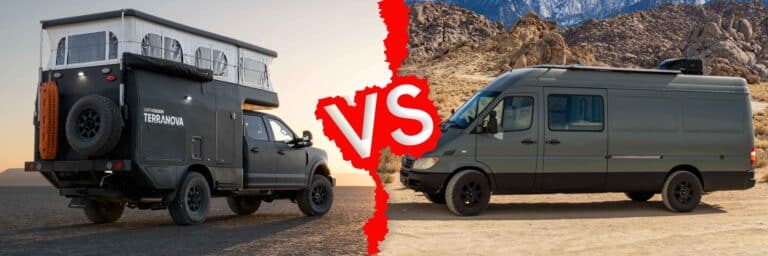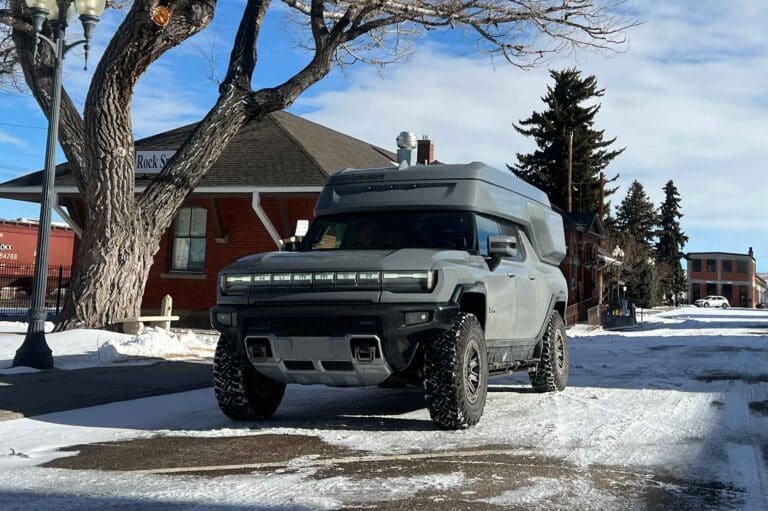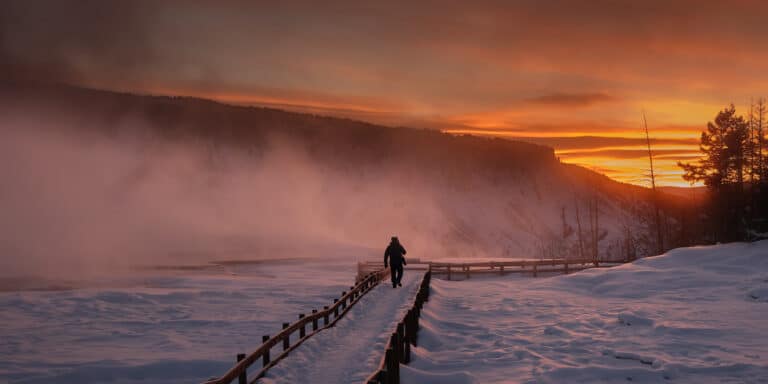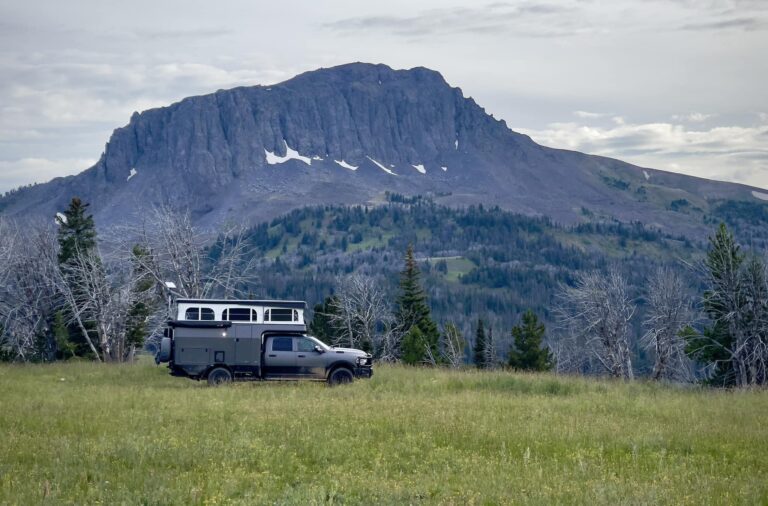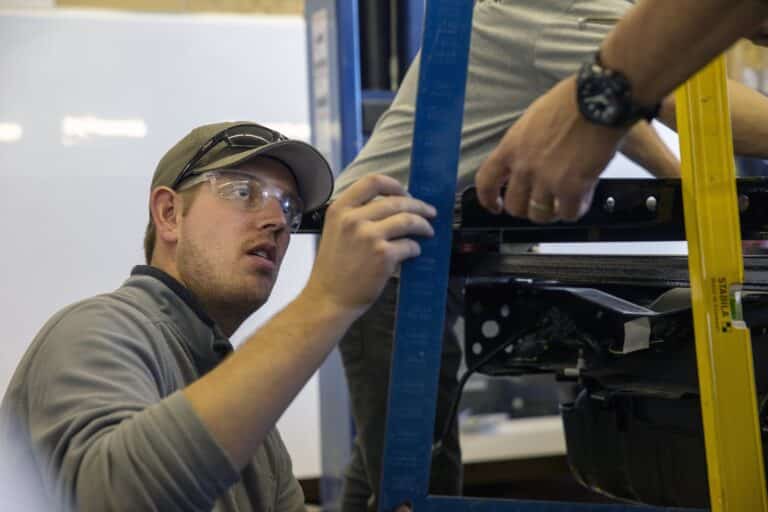We love camping. Any way to get outside and spend a night under a starry sky is good in our book. But there is a reason we choose to overland over camp whenever possible. Why is that, and what is the difference, anyway?
Overlanding is Camping, Only with More Freedom
A quick internet search will turn up many debates over the definition of overlanding. Most of these conversations quickly become an argument over road surfaces and trip duration. Is it true overlanding if you don’t cross a border or leave the pavement? Does a long weekend getaway even count? When does it stop being “car camping” and start becoming “overlanding?”
We think this is asking the wrong questions. To us, overlanding isn’t defined by what vehicle you drive, what type of roads you travel, or how far you go. It’s about the in-the-moment joy of travel and adventure. It’s about being self-reliant, resilient, and curious about the world. For us, overlanding allows us to better tap into that feeling than camping. Why is this?
Interest in the outdoors has exploded in recent years. The American participant base in the outdoors has increased by 6.9% since the COVID pandemic began in early 2020, according to the 2022 Outdoor Participation Trends Report by the Outdoor Industry Association. 45.9 million Americans went camping in 2022. These statistics won’t surprise anyone who has experienced the frustration of sold-out campgrounds and trail permits in the past few years. And while we understand and support the need to limit the impact of more people exploring the outdoors, we can’t help but notice that spending hours online refreshing booking websites to get a coveted campsite diminishes the very reasons we love to get outside.
You’ll often hear campers speaking of the freedom it provides. Freedom from our jobs, traffic, and the hectic constraints of living in a city or town. A break from the routine and a chance to unplug.
An unfortunate side effect of the growing popularity of outdoor activities has brought some of those same constraints to camping. In many campgrounds, your neighbor is only a few feet from you, where you can hear every snore, conversation, or blue tooth stereo. And, just like back home, you don’t get to pick your neighbors.
Campground fees seem to rise every year, with private and premium site fees reaching near hotel-level prices. If you need to plug your vehicle into shore power and water, access a dump station, or use communal showers and toilets, your options are even more limited, and the fees are even higher.
By having a fully self-sufficient overland vehicle with plenty of living space, solar power, insulated housing, bathroom facilities, and a full kitchen, you can choose to stay at these places, something down the road a bit, or far away from everything. Without the need to plug in or resupply frequently and a vehicle that can tackle nearly any road condition, the only limits on where you spend the night are the boundaries of our vast and incredible network of public lands and your imagination.
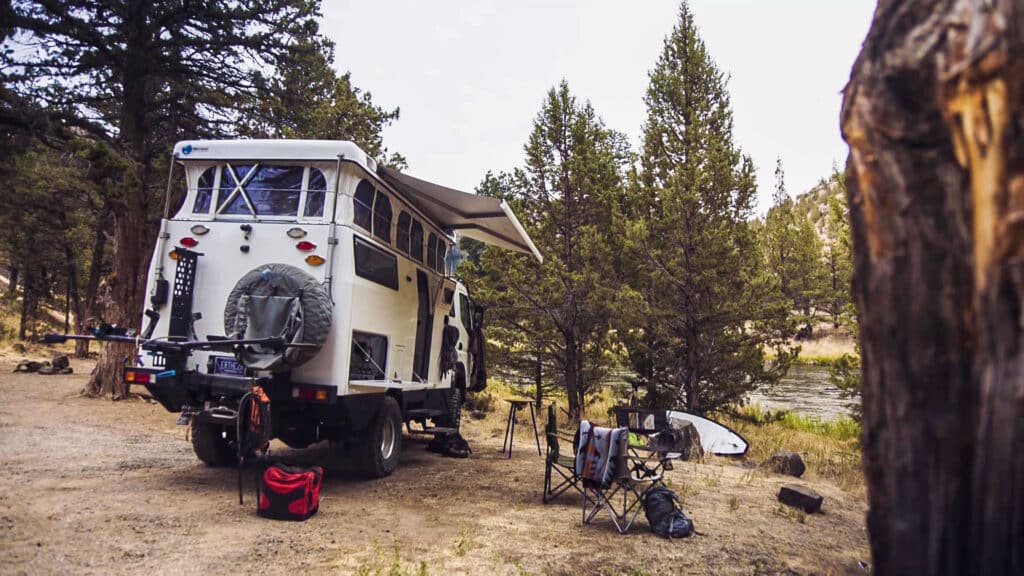
Overlanding Lets You Be More Spontaneous
How long does it take you to pack for a weekend camping trip? How often would you sleep in the outdoors if everything you needed was ready to go at all times? A dedicated overlanding vehicle allows one to start traveling with a turn of the ignition key. No need to reserve campsites in advance because you’re as comfortable, usually even more so, set up at a pullover along a gravel road. Plus, the security a vehicle provides can provide a better night’s sleep in areas with wildlife or humans.
Even the most popular National Parks tend to have dispersed camping options just outside the park’s boundaries. Imagine waking up amongst the same wildlife the crowds are lining up for, only having them all to yourself. So long as we overlanders are good stewards of the places we visit and practice responsible practices like Leave No Trace, we can help take the strain off some of our most treasured natural icons.
Overlanding Unlocks More Possibilities
Once you stop limiting your travel plans to only places that provide facilities and require reservations, you’ll find new parts of the country, and even the world, to visit. Overlanding is possible down the road from your house and in nearly every country, including many you may not have considered. Fantastic dirt trails trace the coast of Portugal, through the mountain towns of Northern India, and the open deserts of Saudi Arabia.
Breaking out of the confines of traditional camping, whether that means avoiding crowded campsites and RV parks, or turning off the pavement whenever possible, opens up so many more places to explore. If your vehicle is capable of providing a comfortable ride for a day’s travel down the highway and equally capable of driving up a rocky dirt road, connecting your favorite places for one epic adventure becomes easy. Suppose you’re comfortable in the wider range of temperatures and weather conditions an overland vehicle can offer. In that case, you won’t have to cram your adventure into the same weather window as every other traveler. Overlanding simply gives you more options.






